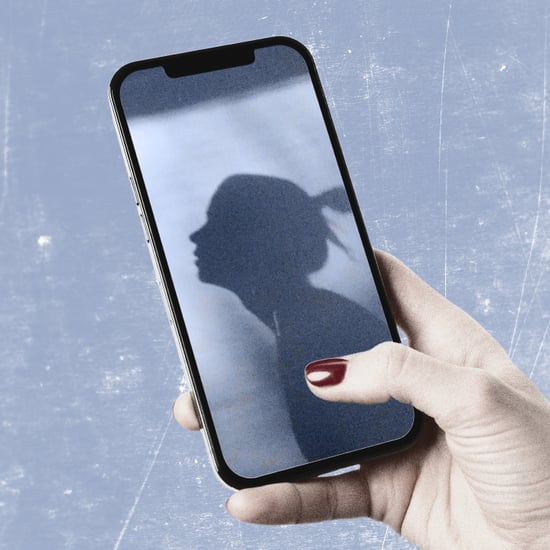Is Shortness of Breath a Symptom of Anxiety?
If Your Anxiety Makes It Hard to Breathe, Here's What a Therapist Says to Do

Of all the physical symptoms of anxiety, shortness of breath might be one of the most frightening. Your chest gets heavy and tight, you feel like you can't suck in enough air, and you might even get dizzy or lightheaded. And feeling like you can't breathe can make you feel even more anxious, which in turn makes it even harder to catch your breath. The whole thing turns into a vicious cycle that, in some cases, can lead to an anxiety attack or a panic attack, said Judy Ho, PhD, clinical and forensic neuropsychologist and host of the SuperCharged Life podcast.
"Part of the anxiety comes from your mind's interpretation of what that symptom means," Dr. Ho told POPSUGAR. If you're working out and breathing hard, you know why your breath is short. But if you can't quickly pinpoint a reason, she said, an anxious mind might catastrophise and jump to the worst conclusions: that it's a heart attack or other serious health issue. "That's when it develops into a panic attack," Dr. Ho explained. "The expectation of that physical symptom meaning something more severe." Right now it's even easier to make that leap, because shortness of breath is also one of the four main symptoms of COVID-19 (along with a fever, cough, and anosmia).
If you have other symptoms, or there's reason to believe you do have COVID-19, Dr. Ho said the best thing to do is to call your doctor and ask about getting tested or treated. But if your shortness of breath is a standalone symptom, or you notice that it only worsens when you feel scared or anxious, it may be a symptom of anxiety, which means there are concrete things you can do to address it. And as a bonus, Dr. Ho said, "if those coping strategies work, then you know that it was more anxiety and not a physical or medical problem."
If you're having a hard time breathing due to anxiety, here's what to do.
- Take 10 deep breaths. This "deceptively simple" tool sends a signal to your mind and your body that everything is OK, Dr. Ho said. It helps you switch from your fight-or-flight sympathetic nervous system into your parasympathetic nervous system, which is associated with relaxation, digestion, rest, and sleep. Dr. Ho recommended "box breathing," where you breathe in for four counts, hold for four counts, breathe out for four counts, hold for for counts, and repeat. (If this doesn't work for you, here are more breathing techniques for anxiety.)
- Identify the root of your emotions. "Emotions don't just happen to us," Dr. Ho said. "Every emotion is preceded by a thought or interpretation of what's going on." Ask yourself, "What was I thinking just before I noticed this feeling?" Dr. Ho suggested. "Once you realise that there was a certain thought that led to that feeling, then you feel less out of control and like you can manage your life better. You feel more empowered to make positive change."
- Decide whether this is actually something you need to worry about. The next step is to ask yourself, "What can we do about that thought? Is it even representative of reality?" Dr. Ho said. "Or is it just a negative thought that I'm having that's catastrophic," and that you can try to tone down? If it's something you have control over, you can take action. If not, or if it's a form of catastrophising, that realisation can help to calm your anxiety further.
- See a mental health professional. If you experience constant anxiety, it's worth seeking out professional help. A licensed therapist can help you develop a plan to address your specific symptoms. Here's a list of free mental health services, from teletherapy options to crisis helplines.








